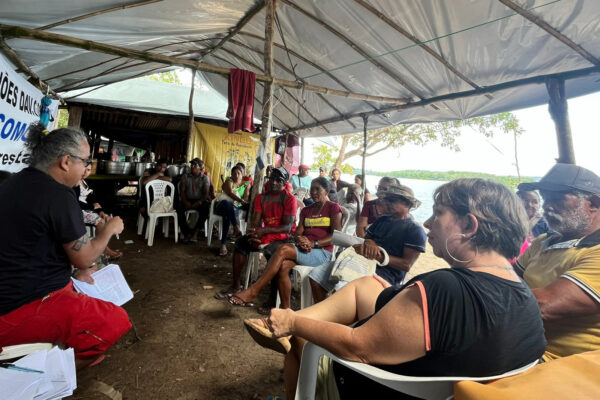Recent measures announced by the Inter-American Development Bank (IDB) to correct persistent gas leaks from a controversial pipeline in the Amazon rainforest do not go far enough to help protect the vulnerable biodiverse area, watchdog groups say.
In response to a new leak in the Camisea gas pipeline in Peru last week, the IDB, which is helping finance the project, said it was taking a series of actions to help address the situation and confirm the bank’s “commitment to the project’s environmental and social sustainability.”
The Washington-based institution, which loans money to Latin American nations, said an independent engineer will perform an “expanded review and analysis” of the project design and construction to identify causes of the spills and potential actions to help prevent future spills.
The rupture on Mar. 4 in the district of Echarati caused fires and injuries to staff. The pipeline operator, Transportadora de Gas del Per£ (TGP), and Peruvian authorities say they are both investigating the incident.
The IDB, which assumed responsibility for monitoring the social and environmental impacts of the $1.6 billion project, says part of its new action involves accelerating the schedule for an independent environmental audit of the project as specified by the loan contract with TGP.
But independent watchdog groups say that the IDB has actually committed to few of their main demands surrounding the controversial pipeline.
Several also criticized the fact that the IDB has not promised to involve either international non-governmental groups or local organizations, and said that they have little faith in the IDB’s ability to oversee a truly independent audit process.
“Unless civil society is involved in developing the terms of reference for the audit and selecting truly independent auditors, we can expect little but rubber stamps by the IDB,” said Atossa Soltani of Amazon Watch, a long-time watcher of the pipeline.
The groups acknowledged the move by the IDB as a positive first step, but said that their involvement was essential given the bank’s record in responding to outside reviews.
“Our complaints extend back a number of years with this project because it is in such a sensitive area both socially and culturally and also in terms of the biodiversity and ecology, particularly in the Amazon region,” said Peter Kostishak of Amazon Alliance.
“I think there’s a general lack of trust from the beginning when we were first told things will be fine and that the project was going to be environmentally sound, and now that problems have emerged we are told ‘well, you have to expect that these things happen,'” he added.
The groups say that during the due diligence process, the IDB’s private sector department consistently turned a blind eye to Camisea’s serious flaws, including the health and socio-economic impacts on the local indigenous population and environmental concerns.
The groups also point to news reports that first surfaced in the Peruvian press last week that from 2002 to 2004, when the IDB was in the process of doing due diligence on Camisea, Peru’s current prime minister, Pedro Pablo Kuczynski, worked for the private sector department of the IDB and was a consultant to the Texas-based Hunt Oil, one of the Camisea consortium members.
An IDB spokesperson told IPS that Kuzynski was only a consultant and had no authority over the Camisea project.
The groups say the fact that they have been calling for some of the recently announced measures by the IDB since it first approved financing shows that the IDB needs civil society groups’ rigorous involvement in the new audit.
“The IDB is about a day late and a dollar short on this,” said Nadia Martinez of the Washington-based Institute for Policy Studies. “I’m glad they’re finally admitting that an audit would be a good idea, but it surely wasn’t their initiative.”
Bill Powers, author of a recent investigation into the Camisea pipeline by E-Tech, a California-based non-profit technical research organization, said their report, whose release two weeks ago sparked new criticism of the pipeline, was in fact carried out exactly because the IDB was stalling for two years.
Powers said that the IDB’s own erosion control consultant, the Canadian firm URS, advised the bank in the spring of 2003 that the builder’s lack of attention to erosion control was likely going to lead to pipeline ruptures down the road.
Powers, whose report charged that the quality of materials and construction procedures used in the Camisea gas pipeline was substandard, said that there is no indication the bank made any effort to force TGP to comply with the terms of the loan.
“An independent post-mortem at this point would almost certainly show IDB passivity in the face of clearly identified (by the IDB’s own consultant) short-cuts occurring in the field played a role in the problems the project is now facing,” he told IPS.
Powers also threw cold water on the bank’s planned audit because of its record on the pipeline.
“I would expect the IDB to attempt to control the ‘independent’ environment audit to avoid losing a great deal of face in light of readily available evidence that the bank’s own consultants were shouting alarms while construction was in progress,” he said.













